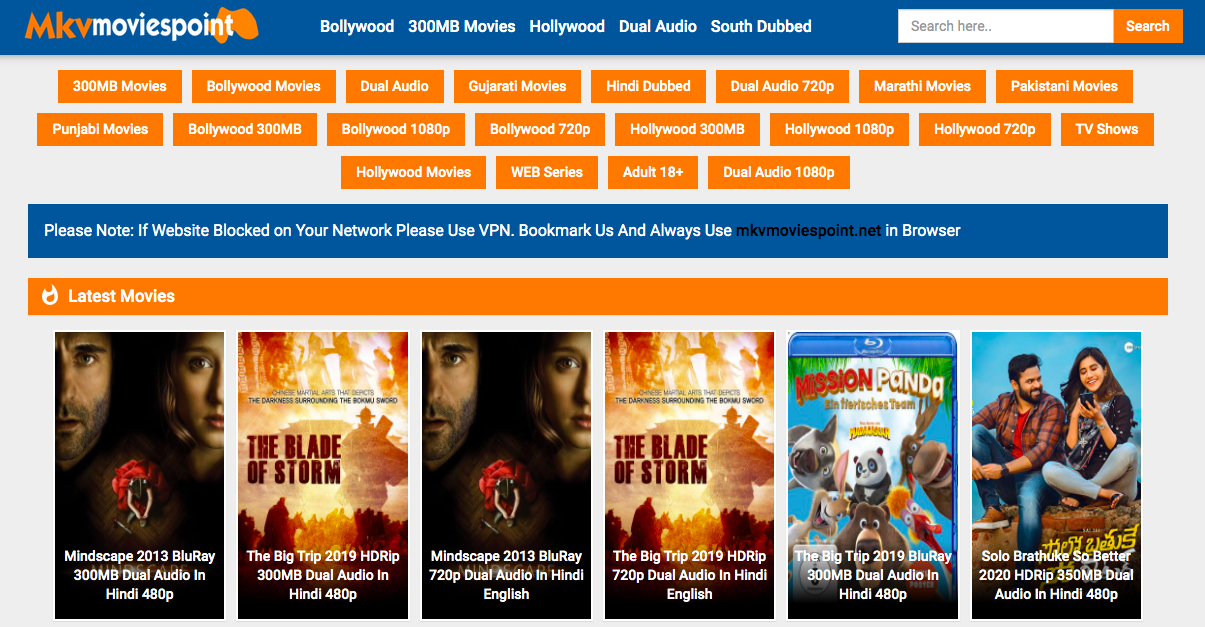Are you tired of endless searches that lead nowhere, leaving you with the frustrating message "We did not find results for:"? You're not alone. The digital landscape is littered with dead ends and misleading information, and knowing how to navigate it is now more critical than ever. Finding reliable information online can feel like searching for a needle in a haystack.
The error message "We did not find results for:" can appear for a multitude of reasons. It could indicate a simple typo in your search query, a temporary server issue on the website you're trying to access, or, more worryingly, a complete absence of relevant content online. This last possibility is particularly relevant in the context of specific search terms, such as those related to unauthorized movie downloads. The prevalence of terms like "Mkvmoviespoint bollywood movies download mp4moviez" often leads users down paths filled with copyright infringement risks and potentially malicious websites. Understanding why these searches fail and how to find legitimate alternatives is crucial for responsible internet usage.
Let's consider the example of searching for "Mkvmoviespoint bollywood movies download mp4moviez your ultimate guide." This search phrase raises immediate red flags. First, the very nature of searching for Bollywood movie downloads suggests a potential violation of copyright laws. Websites offering free downloads of copyrighted movies are often operating illegally and can pose significant risks to users, including malware infections and legal repercussions. Secondly, the inclusion of multiple, seemingly random website names ("Mkvmoviespoint," "mp4moviez") indicates a likely association with sites known for distributing pirated content. These sites frequently change their domain names to evade detection and continue their illegal activities.
- Decoding The Bedroom Floor Lyrics Symbolism And Meaning
- Why Vijay Sethupathis Childrens Ages The Privacy Debate
The search engine's response, "We did not find results for:", may be interpreted in several ways. It could mean that the specific combination of keywords is not indexed, possibly because the sites in question are actively avoiding search engine visibility. Alternatively, the search engine may be filtering out results that lead to known sources of pirated content. In either case, the lack of results should serve as a warning sign. Persisting with such searches is unlikely to yield legitimate results and could expose users to unnecessary risks.
The final suggestion, "Check spelling or type a new query," is a standard troubleshooting step, but it underscores a more fundamental issue: the importance of responsible online searching. Instead of focusing on finding illegal downloads, users should prioritize accessing content through legitimate channels. This includes subscribing to streaming services like Netflix, Amazon Prime Video, and Disney+, which offer a vast library of Bollywood and international movies and TV shows. These platforms provide a safe and legal way to enjoy entertainment content, while also supporting the creators and distributors of that content.
Furthermore, users should be wary of websites that promise free downloads or offer access to copyrighted material without proper authorization. These sites often rely on deceptive tactics, such as misleading advertisements, fake download buttons, and hidden malware, to exploit unsuspecting visitors. Clicking on these links can lead to a range of problems, from annoying pop-ups and unwanted browser extensions to serious security breaches that compromise personal information.
In conclusion, while the error message "We did not find results for:" can be frustrating, it can also serve as a valuable reminder of the importance of responsible online behavior. By avoiding searches for illegal downloads and prioritizing legitimate sources of entertainment, users can protect themselves from the risks associated with pirated content and support the creative industries that produce the movies and TV shows they enjoy. The digital world is vast and complex, but by adopting a cautious and informed approach, users can navigate it safely and responsibly.
Lets delve deeper into the concept of copyright infringement and the associated dangers that lurk behind websites offering free movie downloads. Imagine you are a filmmaker who has poured years of your life, countless hours, and a significant amount of your own money into creating a masterpiece. Then, someone comes along and steals your creation, offering it for free without your consent. That is precisely what websites like Mkvmoviespoint and MP4moviez are doing, and that is why search engines often yield no results when these sites are queried. The legal ramifications of downloading copyrighted material can be severe, ranging from hefty fines to even more serious penalties, depending on the jurisdiction and the extent of the infringement.
Beyond the legal risks, there are also significant security threats associated with accessing websites that distribute pirated content. These sites are notorious for hosting malware, viruses, and other malicious software that can infect your devices and compromise your personal data. Imagine clicking on a download link only to discover that you have inadvertently installed a keylogger that is recording your every keystroke, including your passwords and credit card details. The consequences can be devastating, leading to identity theft, financial losses, and other serious problems. Furthermore, these websites often employ deceptive advertising practices, bombarding users with pop-up ads and redirecting them to other malicious websites. These tactics are designed to trick users into clicking on links that install malware or steal personal information.
The prevalence of websites offering free movie downloads is a persistent problem that requires a multi-faceted approach to address. Law enforcement agencies around the world are actively working to shut down these sites and prosecute the individuals who operate them. However, the sheer number of these sites and their ability to quickly change domain names makes it difficult to eradicate them completely. Content creators and distributors are also taking steps to protect their intellectual property, including using digital watermarks and other technologies to track and prevent unauthorized distribution. Furthermore, education and awareness campaigns play a crucial role in informing the public about the risks associated with downloading pirated content and promoting the use of legitimate streaming services.
Consider the alternative: subscribing to a legitimate streaming service. For a relatively small monthly fee, you can access a vast library of movies and TV shows without the risk of legal repercussions or security threats. These services offer a convenient and affordable way to enjoy entertainment content, while also supporting the creators and distributors of that content. Moreover, streaming services often provide higher-quality video and audio than pirated downloads, ensuring a more enjoyable viewing experience. You also have access to subtitles and other features that enhance your viewing experience. The cost of a streaming service pales in comparison to the potential costs associated with downloading pirated content, including legal fees, malware removal, and identity theft protection.
Its not just about avoiding legal trouble and security threats; its also about supporting the creative industries. The filmmakers, actors, writers, and other artists who create the movies and TV shows we love deserve to be compensated for their work. By subscribing to legitimate streaming services, you are directly supporting these individuals and ensuring that they can continue to create high-quality content. When you download pirated content, you are effectively stealing from these artists and undermining their ability to make a living. Think of it as buying a stolen painting from a street vendor. You may be getting it for a fraction of the price, but you are also contributing to a criminal enterprise and depriving the artist of their rightful compensation.
The frustration of encountering the "We did not find results for:" message when searching for free movie downloads is a symptom of a larger problem: the prevalence of illegal and unethical online activities. While the internet offers a wealth of information and entertainment, it also poses significant risks, including copyright infringement, malware infections, and identity theft. By adopting a responsible and informed approach to online searching, users can protect themselves from these risks and contribute to a safer and more ethical online environment. The next time you are tempted to search for free movie downloads, remember the potential consequences and consider the alternative: subscribing to a legitimate streaming service and supporting the creative industries.
To further illustrate the pitfalls of searching for and engaging with websites like "Mkvmoviespoint bollywood movies download mp4moviez," let's consider a hypothetical scenario. Imagine a user, let's call him Rohan, who is eager to watch the latest Bollywood blockbuster. He types "Mkvmoviespoint bollywood movies download mp4moviez" into his search engine, hoping to find a quick and easy way to watch the movie for free. He clicks on the first result that appears, which leads him to a website that looks suspiciously unprofessional. The website is filled with flashing ads, pop-up windows, and broken links. Despite his initial hesitation, Rohan decides to proceed, lured by the promise of a free movie download. He clicks on a prominent "Download" button, which triggers the download of a file with a generic name. He opens the file, only to discover that it is not a movie but a malicious program that installs itself on his computer without his knowledge. The program begins to monitor his online activity, steal his passwords, and display intrusive ads. Rohan's computer becomes sluggish and unreliable, and he soon realizes that he has made a serious mistake. He tries to remove the program, but it is deeply embedded in his system. He is forced to seek professional help, which costs him a significant amount of money and time. Rohan learns a valuable lesson: the promise of a free movie is not worth the risk of compromising his online security and privacy.
This scenario is not an isolated incident. Countless users have fallen victim to similar scams, lured by the promise of free content. The operators of these websites are often sophisticated criminals who use deceptive tactics to exploit unsuspecting users. They rely on the fact that many people are unaware of the risks associated with downloading pirated content and are willing to take shortcuts in order to save money. However, the true cost of downloading pirated content is often far greater than the price of a legitimate streaming service. It includes the risk of legal repercussions, security threats, and the potential loss of personal information. It is important to remember that there is no such thing as a free lunch. If something seems too good to be true, it probably is.
The responsibility for combating the problem of online piracy rests not only with law enforcement agencies and content creators but also with individual users. By adopting a responsible and informed approach to online searching and avoiding websites that offer free movie downloads, users can protect themselves from the risks associated with pirated content and contribute to a safer and more ethical online environment. It is a simple choice: risk your security and privacy for a fleeting moment of free entertainment, or invest in a legitimate streaming service and support the creative industries that produce the movies and TV shows we love. The choice is yours.
Let's explore some specific alternative search strategies that can help users find legitimate content online, instead of resorting to dubious sites like "Mkvmoviespoint bollywood movies download mp4moviez." First, be specific with your searches. Instead of typing in generic phrases like "Bollywood movies download," try searching for the specific title of the movie you're looking for, followed by terms like "watch online legally" or "streaming services." This will help you narrow down your search results and avoid websites that offer pirated content. Second, use advanced search operators. Most search engines offer a range of advanced search operators that can help you refine your search results. For example, you can use the "site:" operator to search for content only on specific websites, such as Netflix or Amazon Prime Video. You can also use the "-" operator to exclude certain terms from your search results, such as "download" or "free." Third, check the source of the information. Before clicking on a search result, take a moment to examine the website that it leads to. Is the website professional and trustworthy? Does it have a clear privacy policy and terms of service? Does it offer contact information and customer support? If the website looks suspicious or unprofessional, it is best to avoid it. Fourth, be wary of clickbait. Websites that offer free movie downloads often use clickbait headlines and misleading descriptions to attract users. Be skeptical of any website that promises free access to copyrighted content and avoid clicking on links that seem too good to be true. Fifth, use a VPN. A virtual private network (VPN) can help protect your online privacy and security by encrypting your internet traffic and masking your IP address. This can make it more difficult for websites to track your online activity and steal your personal information. While a VPN is not a foolproof solution, it can add an extra layer of protection when browsing the internet. Finally, report suspicious websites. If you encounter a website that offers free movie downloads or engages in other illegal activities, you can report it to the appropriate authorities, such as the Internet Watch Foundation or the National Cyber Security Centre. By reporting these websites, you can help protect other users from falling victim to their scams.
Consider the broader implications of online piracy on the film industry. When people download movies illegally, it directly impacts the revenue generated by these films. This revenue is crucial for financing future projects, paying the cast and crew, and investing in production quality. Without sufficient funding, the industry struggles to produce high-quality content, leading to a decline in creativity and innovation. Furthermore, online piracy can lead to job losses across the industry, affecting not only actors and directors but also editors, cinematographers, costume designers, and countless other professionals who contribute to the filmmaking process. It's a ripple effect that impacts the entire ecosystem of the film industry.
Let's consider the role of internet service providers (ISPs) in combating online piracy. ISPs have a responsibility to take action against users who are engaging in illegal activities, such as downloading copyrighted content. They can monitor internet traffic and identify users who are downloading pirated movies. ISPs can then send warning notices to these users, informing them that they are violating copyright laws and that they could face legal action. In some cases, ISPs may even be required to block access to websites that offer pirated content. However, the extent to which ISPs are willing or able to take action against online piracy varies depending on the jurisdiction and the specific laws in place. Some countries have stricter copyright enforcement laws than others, and ISPs in these countries are more likely to take action against users who are downloading pirated content. In other countries, copyright enforcement is more lax, and ISPs are less likely to take action.
The landscape of online entertainment is constantly evolving, with new streaming services and platforms emerging all the time. These services offer a wide range of movies and TV shows at affordable prices, making it easier than ever to access legitimate content. As the availability of legitimate content increases, the incentive to download pirated content decreases. However, online piracy is likely to remain a persistent problem, as long as there are users who are willing to take the risk of downloading copyrighted content for free. The key to combating online piracy is to continue to raise awareness about the risks and promote the use of legitimate streaming services. By working together, law enforcement agencies, content creators, ISPs, and individual users can create a safer and more ethical online environment for everyone.
Focus on education and awareness. Many people are simply unaware of the legal and ethical implications of downloading pirated content. By educating users about copyright laws, the risks associated with downloading pirated content, and the benefits of subscribing to legitimate streaming services, we can help reduce the demand for pirated content. This education should start at a young age, with schools and parents teaching children about the importance of respecting intellectual property. It should also be ongoing, with public service announcements and awareness campaigns reminding users of the risks and benefits. By raising awareness, we can create a culture of respect for intellectual property and reduce the demand for pirated content.
- Decoding Famke Janssens Jean Grey Role In Xmen Evolution
- James Mcavoys Children What We Know And Dont Know Today


